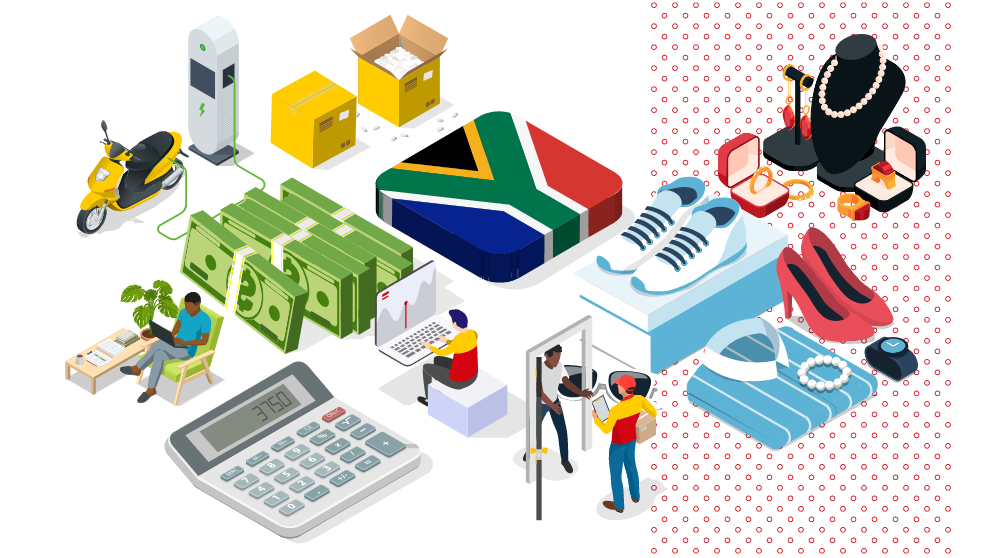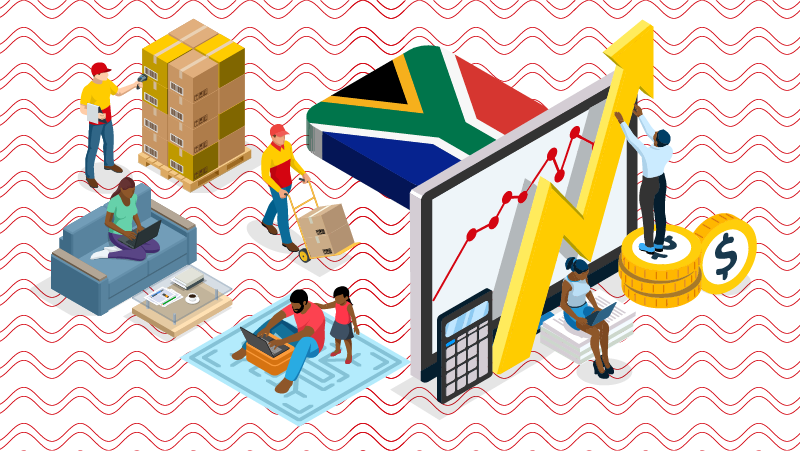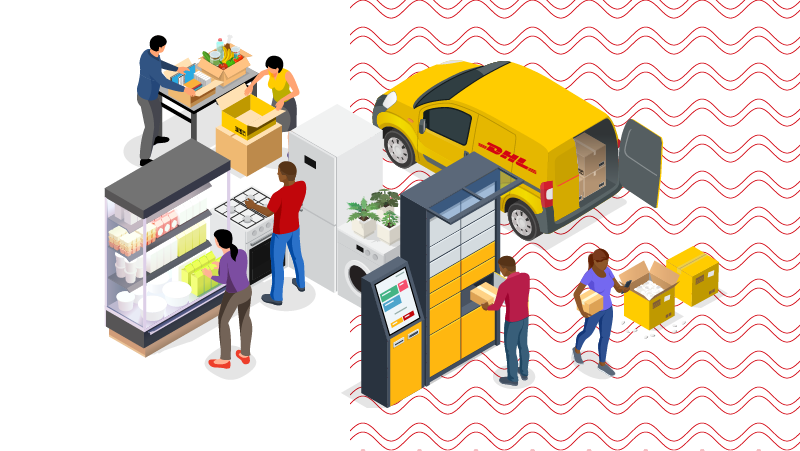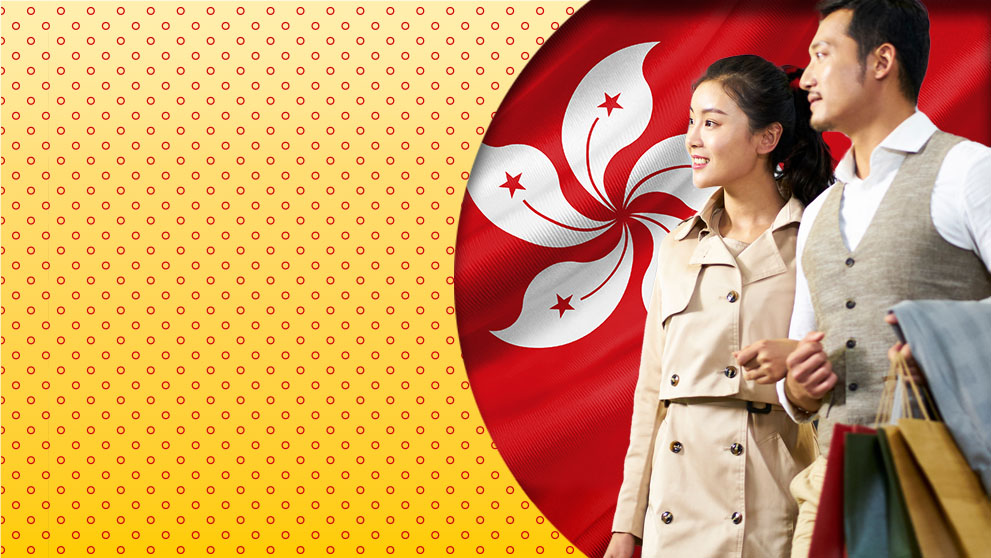South Africa has long been known as one of the strongest economies in Africa. Today, it has the third-largest economy behind Nigeria and Egypt.1 South Africa is one of the richest countries in Africa, with the 6th highest GDP per capita of any nation on the continent. 2 This suggests its consumers have more to spend – it also has the highest ARPU (average revenue per user) for e-commerce sales of any African country.3
South Africa offers great potential for international businesses, and this guide provides you with insights, customer buying habits, and export and customs tips to help your business succeed within this key market.

60 million people
South Africa has a population of approximately 60 million, providing a significant consumer base.

South Africa’s e-commerce growth is healthy
E-commerce revenue in the country is projected to grow at 11.89% CAGR between 2023 and 2027.(4)

Africa’s highest revenue per user
South Africa’s e-commerce average revenue per user (ARPU) is US$257.70 as of 2022. This is the highest of any large African nation. By 2027, it is set to jump to US$402, more than double that of Morocco, Egypt, Kenya, and Nigeria.(5)

The rainbow nation
South Africa is a diverse country, with 12 languages on its official list of languages – plus another dozen actively in use in the country. Make sure you know your audience and their languages.
These are the countries South Africa imports the most from by region of origin as of August 2023.8
E-commerce and shopping trends
This graph shows the most visited online marketplaces that connect South African buyers with sellers, so you need to ensure you have a presence on these e-commerce sites.6
Popular online payment methods7
Credit and debit cards are widely used for online purchases in South Africa. Instant EFT (Electronic Funds Transfer/bank transfer) lets customers make real-time bank transfers directly from their online banking platforms. Digital wallets like PayPal and PayFast are gaining popularity in South Africa. Integrating these payment methods can provide a secure and convenient option for customers.
Shopping trends in South Africa

Shift to Online Shopping
The COVID-19 pandemic has accelerated the adoption of online shopping in South Africa. Consumers have increasingly turned to e-commerce platforms to make purchases, driven by safety concerns, convenience, and access to a wider range of products.

Growth of Discount Retailers
Consumers are turning to stores that offer lower prices and promotions. This trend reflects the need for affordable options and the desire to stretch their budgets further.

Focus on Essential Purchases
The pandemic has shifted consumer priorities, with a greater emphasis on essential purchases. Consumers are becoming more practical in their buying decisions, prioritizing essential items such as groceries, healthcare products, and household essentials over discretionary or luxury items.

Demand for Local and Sustainable Products
There is a growing interest in supporting local businesses and purchasing locally made products in South Africa. Consumers are increasingly conscious of sustainability and environmental factors, seeking out products that are eco-friendly, socially responsible, and have a positive impact on their communities.

Safety and Hygiene Concerns
Given the ongoing pandemic, consumers are more concerned about safety and hygiene when shopping. Retailers that prioritize and communicate their safety measures, such as sanitization protocols, contactless payments, and social distancing, are likely to gain consumer trust and preference.

Increased Digital Engagement
With the rise of online shopping, consumers are engaging more with digital channels for product research, reviews, and recommendations. They rely on social media platforms, online reviews, and influencers to gather information and make informed purchase decisions.
Holidays and shopping events to look out for
Public Holidays
South Africa has 12 public holidays, which can significantly affect business activities. These holidays are often regarded as shopping opportunities by locals. It's important to note that South Africa’s cities slow down from around December 16 until early January, with a shopping frenzy that tapers off between Christmas Day and New Year's Day. Major malls are generally open on public holidays.
Holiday Shopping
The period from December 16 to early January is known for increased shopping activities. This can be an opportunity for businesses to attract customers with special offers and promotions.
Holiday Schedule
When a public holiday falls on a Sunday, the following Monday is also declared a public holiday. This extended holiday period can affect the availability of services and impact business operations.
Cultural and Historical Significance
Several public holidays in South Africa hold cultural and historical significance. It's essential to understand the context and significance of these holidays to engage with customers and employees effectively. For example, Youth Day on June 16 commemorates the Soweto riots of 1976, and Heritage Day on September 24 celebrates the cultural heritage of the diverse ethnic groups in the country.
Chinese New Year
The Chinese New Year is a popular holiday, particularly in Johannesburg, where there is a well-established Chinese community. Traditional celebrations, including firecrackers and dancing dragons, take place on consecutive Saturdays in the city's Chinatowns.
Africa Day
May 25 is Africa Day, commemorating the formation of the Organisation of African Unity (OAU). While not a public holiday in South Africa, it is celebrated in many African countries. It's worth considering the pan-African significance of this day when engaging with customers and employees from various African backgrounds.
Mandela Day
July 18 is internationally celebrated as Mandela Day, honoring the late Nelson Mandela's legacy. People are encouraged to devote 67 minutes of their time to charitable and community activities, representing the 67 years Mandela spent serving the country. Participating in Mandela Day initiatives can showcase corporate social responsibility and community involvement.
Customs regulations in South Africa
South Africa has been a member of the World Trade Organization (WTO) since 1995. As such, it gives all importers and exporters the peace of mind that the customs process in South Africa is clean, fair, and aligned with global standards.
Import taxes and duty calculations in South Africa are managed by the South African Revenue Services (SARS).
Regulated items
For a complete list of regulated and prohibited items, see the SARS website’s Prohibited, Restricted and counterfeit goods list. South Africa is part of many trade agreements with other countries across the world, so it is always recommended that you check in advance.
If you are a private individual or an organisation that imports items into South Africa with an excess value of ZAR150,000 in the South African financial year (1 March – 28 February), you must be registered with SARS. You can get started here.
DHL’s insider tips for trading in South Africa
- Do the research. Check with the receiver that they are registered and have the correct licenses in place. Always ensure that when you trade into South Africa, the receiver has the information upfront.
- Decide whether to charge for returns. Several retailers, including Zara, Abercrombie & Fitch, and Boohoo, have implemented return fees. This shift is driven by the need to reduce expenses, improve profitability, and manage the challenges posed by factors like the pandemic, increased online shopping, and inventory glut.
- Be aware of return fraud. Returning counterfeit items is becoming more prevalent. This poses challenges for retailers, and some have implemented measures to mitigate the impact, such as shortening return windows and implementing restocking fees.
Thinking of exporting to South Africa?
Our complete international shipping service helps you ship quickly and reliably.
Find out more1 Africa: GDP by country 2022 | Statista
2 GDP per capita in Africa, by country 2022 | Statista
3 Africa: e-commerce market ARPU in select countries | Statista
4 eCommerce - South Africa | Statista Market Forecast
5 Africa: e-commerce market ARPU in select countries | Statista
6 Most popular online shops in South Africa 2023 | Statista
7 South Africa: preferred online payment methods 2020 | Statista
8 Trade Statistics | South African Revenue Service

































